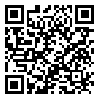Thu, Jan 8, 2026
[Archive]
Volume 10, Issue 4 (10-2024)
jhehp 2024, 10(4): 177-178 |
Back to browse issues page
Download citation:
BibTeX | RIS | EndNote | Medlars | ProCite | Reference Manager | RefWorks
Send citation to:



BibTeX | RIS | EndNote | Medlars | ProCite | Reference Manager | RefWorks
Send citation to:
Kalantari R. Are Healthcare Staff Ready for the Dengue Fever Epidemic Challenge?. jhehp 2024; 10 (4) :177-178
URL: http://jhehp.zums.ac.ir/article-1-663-en.html
URL: http://jhehp.zums.ac.ir/article-1-663-en.html
Department of Occupational Health Engineering, Faculty of Public Health, Zanjan University of Medical Sciences, Zanjan, Iran.
Abstract: (2518 Views)
The rising incidence of dengue fever poses a significant threat, with symptoms ranging from mild to severe, potentially requiring hospitalization. The economic burden associated with the disease has stressed healthcare systems in several countries. Furthermore, the COVID-19 pandemic has already strained healthcare workers, causing mental health issues and burnout. To effectively address the dengue fever epidemic, governments must invest in strengthening healthcare infrastructure, increase healthcare workers' knowledge and salaries, and implement resilience-building interventions. Vaccination and preventive measures are crucial in reducing the disease burden and alleviating the pressure on healthcare systems, ensuring better preparedness and support for healthcare staff.
Type of Study: Letter to Editor |
Subject:
Occupational and Industrial Health
Received: 2024/09/3 | Accepted: 2024/10/3 | Published: 2024/10/15
Received: 2024/09/3 | Accepted: 2024/10/3 | Published: 2024/10/15
References
1. Annaloro, C., Arrigoni, C., Ghizzardi, G., Dellafiore, F., Magon, A., Maga, G., . . . & Caruso, R. (2021). Burnout and post-traumatic stress disorder in frontline nurses during the COVID-19 pandemic: a systematic literature review and meta-analysis of studies published in 2020. Acta Bio-Medica De L'ateneo Parmense, 92, 1-25. [Google Scholar]
2. Ardebili, M. E., Naserbakht, M., Bernstein, C., Alazmani-Noodeh, F., Hakimi, H., & Ranjbar, H. (2021). Healthcare providers’ experience of working during the COVID-19 pandemic: A qualitative study. American Journal of Infection Control, 49(5), 547-554. [Crossref] [Google Scholar]
3. Azil, A. H., Ahmad, N., Rosam, A. N. R., Ru, W. M., Norizan, N. A., Shahabudin, F. L., . . . & Sharip, S. (2018). Knowledge and practice regarding dengue fever and acceptance towards Wolbachia among Universiti Kebangsaan Malaysia Medical Centre healthcare staff. Malaysian Journal of Public Health Medicine, 1, 69-76. [Google Scholar]
4. Bakhshi, E., Moradi, A., Naderi, M., & Kalantari, R. (2018). Associations of the quality of work life and depression, anxiety, and stress in the employees of healthcare systems. Journal of Patient Safety and Quality Improvement, 6(1), 662-667. [Google Scholar]
5. Ferreira, P., & Gomes, S. (2021). The role of resilience in reducing burnout: A study with healthcare workers during the COVID-19 pandemic. Social Sciences, 10(9), 317. [Crossref] [Google Scholar]
6. Godói, I. P., Da Silva, L. V. D., Sarker, A. R., Megiddo, I., Morton, A., Godman, B., . . . & Guerra-Junior, A. A. (2018). Economic and epidemiological impact of dengue illness over 16 years from a public health system perspective in Brazil to inform future health policies including the adoption of a dengue vaccine. Expert Review of Vaccines, 17(12), 1123-1133. [Crossref] [Google Scholar]
7. Haileamlak, A. (2021). The impact of COVID-19 on health and health systems. Ethiopian Journal of Health Sciences, 31(6), 1073. [Google Scholar]
8. Mardani, M., Abbasi, F., Aghahasani, M., & Ghavam, B. (2013). First Iranian imported case of dengue. International Journal of Preventive Medicine, 4(9), 1075. [Google Scholar]
9. Myers, L. C., & Liu, V. X. (2022). The COVID-19 pandemic strikes again and again and again. JAMA Network Open, 5(3), e221760. [Crossref] [Google Scholar]
10. Nikookar, S. H., Moosazadeh, M., Fazeli-Dinan, M., Zaim, M., Sedaghat, M. M., & Enayati, A. (2023). Knowledge, attitude, and practice of healthcare workers regarding dengue fever in Mazandaran Province, northern Iran. Frontiers in Public Health, 11, 1129056. [Crossref] [Google Scholar]
11. O'Higgins, M., Rojas, L. A., Echeverria, I., Roselló-Jiménez, L., Benito, A., & Haro, G. (2022). Burnout, psychopathology, and purpose in life in healthcare workers during COVID-19 pandemic. Frontiers in Public Health, 10, 926328. [Crossref] [Google Scholar]
12. Rehan, S. T., Asghar, M. S., Ullah, I., Mahmood, H., Lee, K. Y., & Tahir, M. J. (2022). Dengue outbreak and fragile healthcare system: Doctors at the verge of mental and physical stress. Brain and Behavior, 12(11). [Crossref] [Google Scholar]
13. Rodriguez, R. C., Galera-Gelvez, K., Yescas, J. G. L., & Rueda-Gallardo, J. A. (2015). Costs of dengue to the health system and individuals in Colombia from 2010 to 2012. The American Journal of Tropical Medicine and Hygiene, 92(4), 709. [Crossref] [Google Scholar]
14. Salanova, M., & Ortega-Maldonado, A. (2019). Psychological capital development in organizations: An integrative review of evidence-based intervention programs. Positive Psychological Intervention Design Protocols for Multi-Cultural Contexts, 81-102. [Crossref] [Google Scholar]
15. Santamaría, M. D., Ozamiz-Etxebarria, N., Rodríguez, I. R., Albondiga-Mayor, J. J., & Gorrochategi, M. P. (2021). Psychological impact of COVID-19 on a sample of Spanish health professionals. Revista de Psiquiatría y Salud Mental, 14(2), 106-112. [Crossref] [Google Scholar]
16. Sinsky, C. A., Brown, R. L., Stillman, M. J., & Linzer, M. (2021). COVID-related stress and work intentions in a sample of US health care workers. Mayo Clinic Proceedings: Innovations, Quality and Outcomes, 5(6), 1165-1173. [Crossref] [Google Scholar]
17. WHO. (2024). Dengue and severe dengue. https://www.who.int/news-room/fact-sheets/detail/dengue-and-severe-dengue#:~:text=Dengue%20(break%2Dbone%20fever),aches%2C%20nausea%2C%20and%20rash
Send email to the article author
| Rights and permissions | |
 |
This work is licensed under a Creative Commons Attribution-NonCommercial 4.0 International License. |
© 2024 The Author(s)

.png)



